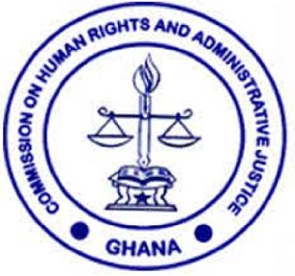MEDIA STATEMENT BY THE COMMISSION ON HUMAN RIGHTS AND ADMINISTRATIVE JUSTICE ON THE COMMEMORATION OF THE UN ZERO DISCRIMINATION DAY - 1st MARCH 2023:
The Commission on Human Rights and Administrative Justice joins hands with the
International Community to commemorate the United Nations Zero Discrimination
Day 2023. The establishment of this Commemoration Day by the UNAIDS is in
furtherance of ending the human rights abuse of people who are being stigmatized
and discriminated against globally on the basis of their HIV/AIDS status.
The Zero Discrimination Day was introduced by the UNAIDS in December 2013.
The objective for observing the day was to end stigma and unfair treatment
towards people living with HIV/AIDS.
The United Nations promoted this cause through encouraging stakeholders to undertake various commemorative events and designing campaigns that celebrated the human life and freedom of people to live in honor and dignity irrespective of their HIV status. However, the international community first observed the Day on 1st March 2014 and the day has since been observed globally on 1st March every year.
In Ghana, approximately 346,120 people are living with HIV/AIDS, made up of
66% females and 34% males. 1 According to the Ghana Aids Commission, 71% of
the people living with HIV know their status. Additionally, while 99% of the
1 Ghana Aids Commission available at https://www.ghanaaids.gov.gh (accessed 27 February 2023).
People with recorded HIV infection receive sustained anti-retroviral therapy
(ART), only 79% of that population shows viral suppression. Thus, Ghana misses
out on the UNAIDS’ ambitious target code of 90-90-90, which aims to ensure that
90% of all people living with HIV will know their status, 90% of all people
diagnosed with HIV will receive ART, and 90% of all people receiving ART will
have viral suppression, by 2020.
Stigma and discrimination remain the most insidious challenges to management of
HIV/AIDS in Ghana; 2 a situation which discourages many people from seeking
counselling and testing services concerning their HIV status. 3 Hence, they resort to keeping to themselves rather than integrating with people and the community.
These discriminatory tendencies lead to disadvantages that limit their participation in the community, decrease in social interactions, create economic difficulties due to limited ability to secure and maintain jobs.
The laws of Ghana protect individuals against discrimination. 4 Also, Ghana AIDS
Commission together with other institutions have over the years mounted various
activities to protect persons living with HIV who are experiencing stigma and
discrimination, yet the practice persists.
Thus, more needs to be done by the government through its agencies such as Ghana Aids Commission (GAC) and the Ministry of Gender, Children and Social Protection (MoGCSP) and other relevant stakeholders to completely address the phenomenon.
On this day, the Commission reiterates that stigma and discrimination of any kind are not only unlawful and violations of the rights of the affected persons, but the practices are also counterproductive. The violation of the human rights of affected persons must come to a halt to enhance peace and progress in the country.
https://citinewsroom.com/2019/07/stigmatization-remains-our-biggest-challenge-ghana-aid-commission/ (accessed 27 February 2023).
https://gna.org.gh/2022/10/stigmatisation-and-discrimination-major-challenges-of-hiv-testing-gac/ (accessed 27 February 2023).
See art. 17 of the Constitution of Ghana, 1992.
On this day, the Commission makes a call to action by all stakeholders to eradicate stigma and discrimination in all its forms and to promote social inclusion and tolerance. Every person has the right to live in dignity regardless of their HIV status.
As we observe this day of Zero Discrimination, the Commission urges
Government of Ghana to put additional measures in place to eradicate the issue of discrimination and encourage everyone to live in harmony and peace with others.
Press Releases of Tuesday, 28 February 2023
Source: pwawuvi d. rufina, contributor

















